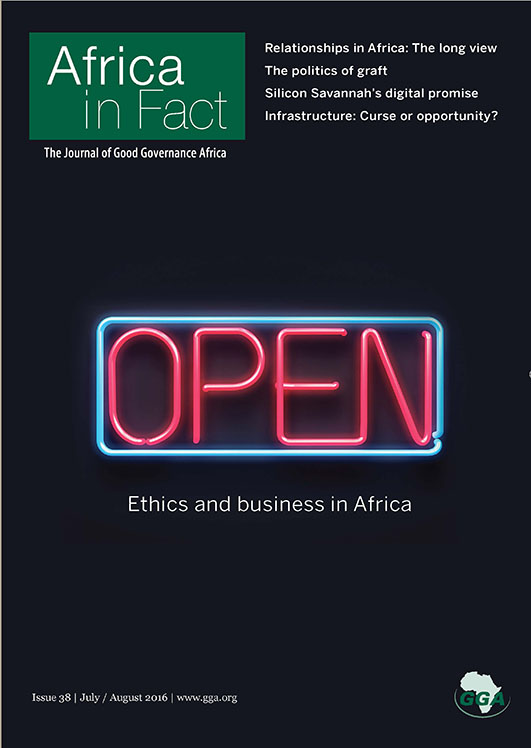
Bad News: Last Journalists in a Dictatorship. By Anjan Sundaram, Bloomsbury, 193 pages
It sounds like the set up for a farcical comedy: a journalist sets up shop in Kigali in order to train a small cohort of writers on how to independently cover strongman President Paul Kagame’s regime. There are, however, few laughs to be had in Anjan Sundaram’s superb, timely new book.
While the development community has lauded the strides made by Kagame in transforming Rwanda into “Africa’s Singapore”, and while hundreds of Western luminaries, including Tony Blair, gathered in the capital in May of this year for the World Economic Forum, far too little consideration has been given to the costs of all this change.
Mr Sundaram is by no means the first to point out that the Rwandan independent media—what remains of it, anyway—has paid dearly for Rwanda’s much-vaunted stability, and that’s mostly because of its inherent power. “It has been so in every revolution, even in the Arab Spring, in today’s digital age,” he notes. “Writers are often at the forefront of revolutions. And it often is they who bear the brunt of the repression. A radio broadcast requires equipment–an emitter, an antenna. The speaker on the radio might be recognised, and killed. The equipment can be destroyed, leaving the revolution mute. But the written word belongs to no one. It has no source, no root that can be annihilated. It passes from hand to hand. It is destroyed; new words are written.”
Intuitively understanding this, Mr Kagame has chased both the independent press and its attendant samizdat culture with unrelenting viciousness. Mr Sundaram personalises this tragedy poignantly by introducing us to the star student in his class, whom he calls Gibson.
Gibson has written stories for what was Rwanda’s most popular publication, Umuseso, or “The Early Morning”, but in any normal press culture he would have been a cub learning the ropes. For a time Umuseso served as the country’s main independent newspaper, and its scoops were culled from sources inside the regime. “Its journalism was the only kind that had any meaning in the dictatorship,” writes Sundaram. Gibson must therefore live a hidden life, hiding out in his own home, asking neighbours to buy his necessaries for him.
Devoted to his country and to ensuring that some form of counter-voice emerges in order to quell the worst tendencies of the dictatorship, Gibson comes up with the idea to start a magazine, which he calls New Horizons. He is careful to ensure that its stories do not antagonise the regime, nor call it to account. A magazine of human stories, it is calibrated to inform but not to offend. He goes through the backbreaking labour of negotiating through the bureaucracy, making sure he has registered with the appropriate authorities and carefully ensuring that he is behaving within the bounds of the country’s Kafkaesque regulations.
But none of this is enough. Soon, Gibson learns that they are after him. ‘They” are not just anybody.
The warning arrives from a fellow classmate, a journalist Gibson has considered a friend. Now this man is one of the Intore—the president’s official flatterers, his praise singers. The Intore are the press in Rwanda, serving as the regime’s semiofficial explainers. One can get rich—or at least comfortable—as one of their number. For Gibson, the betrayal breaks his heart.
Mr Sundaram watches Gibson go out into exile, the regime dogging him every step of the way. The signs aren’t good: Mr Kagame has been notoriously brutal on dissenters, sending his assassins to South African hotel rooms to eliminate those that have opposed him. The sense of tragedy clinging to Gibson informs the entire book, which is drenched in sadness and loss.
As the regime cracks down further on the media, the students in Mr Sundaram’s class become increasingly disillusioned. “Unable to talk, the country’s journalists had begun to scream. The last free journalists began to self-destruct,” he writes. A pensée unique had taken hold—a single way of thinking that has come to define every aspect of life in the country.
This single way of thinking has sweeping social implications. Mr Sundaram writes disturbingly of a genocide memorial he attends with a veteran journalist. As he sees it, the event seems designed to open wounds that may not even have been there in the first place. “I was doubly horrified,” writes Mr Sundaram. “I had expected something else from the memorials: some compassion for society, but I felt only violence. The government of Rwanda had created these events, which instead of healing society, increased its trauma. The terror of the genocide was being used and spread. One realised that the genocide and the time of war, almost two decades past, were still kept alive in the country. The trauma of the genocide was, in the children, running like roots through society.”
This then, is the flipside to the Rwandan miracle—it shows the sausage getting made. It is nothing less than the best book written about Rwanda by an outsider, a massively important contribution to understanding what is one of Africa’s most important, inscrutable, regimes. And it is a regime guided, goaded and led by one man: “[He] could make or condemn people, villages and entire regions with words – it was almost as if his spoken word became reality, became the world.”


